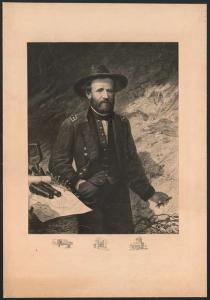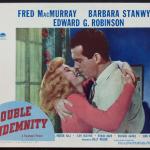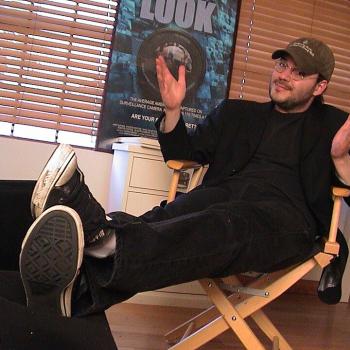
Source: The Library of Congress
As a five-year-old in 1999, I remember gawking at the Burger King tie-in toys for Will Smith’s newest movie: Wild Wild West. I didn’t see it then. Ever since (and for anyone not alive or otherwise unconscious in that year) it feels like a fever dream. A big budget action comedy in which steampunk Will Smith runs around the frontier trying to wrangle a legless Neo-Confederate Cajun who rides around in a gigantic mecha-spider? How could could such a thing exist? And yet the Good Lord provides.
That description makes the movie sound far more enticing than the product itself ends up being (somebody bring me on to do PR already!). Based on a 60s TV Series, this Barry Sonnenfeld directed effort is Shanghai Noon (2000) without Jackie Chan (and what could be worse than subtracting Jackie Chan?). It’s filled with flat jokes and half-baked gags, like in the opening scene when Will Smith, busy smooching a foxy lady in a Reconstruction-era jacuzzi, spots desperadoes on the horizon and, distracted, ends up making out with the air. The plot is predictable and sometimes full of holes (how does the train trap door work? Why does the bad guy drop his victims so close to his final destination—makes it pretty easy to catch back up, no?). But this is a late-90s Will Smith vehicle where the man himself raps the theme song—no one went for the compelling plot or the cutting-edge humor.
Critics and audiences felt the same way at the time. It lost money. Roger Ebert opened his review by calling it a “comedy dead zone.” But I, dear reader, have the benefit of hindsight. And with the benefit of hindsight (and not an ounce of nostalgia), I can say: “damn, I wish more big budget blockbusters were more like the absolute catastrophe Wild Wild West and less like what makes hundreds of millions at the box office now.”
You see, in some ways, the movie is not very reflective of its times. Based on an old TV program and languishing in development hell for decades, the movie is not pure Gen X ennui, nor is it some Clintonite post-political propaganda piece. Quite the opposite—Wild Wild West has a better read on US history than many Americans. You might even call it a Revisionist Western.
Hear me out. This is a movie in which a Black cowboy (a real and substantial group, though one rarely represented) who saw a runaway slave camp burned by a mixture of regular Confederate troops and Quantrill-esque heavies, seeks revenge on the assailants. His primary enemy, it turns out, is a former Confederate who is trying to not just reverse Reconstruction but entirely undo the result of the War. President Grant is played not as a drunk (as he is often is in the Lost Cause myth), but instead as a resolute opponent of secession and the Southern cause who will do what it takes to bring (relative) peace and equality to the US. There is not a single moment in the film that suggests the cause of the Civil War was anything but race-based slavery. It even opens with Will Smith punching a thug who’s about to call him the n-word. The damn thing sounds like Malcolm X when you compare it to our contemporary national discourse.
The irony is that many of the jokes are offensive by our standards. Smith’s partner Artemus Gordon (Kevin Kline) dresses as a woman on multiple occasions, creating space for some now tasteless gender jokes. Our hero even makes a few lynching jokes while facing death at the hands of a white mob (a mob he’s up against on account of the aforementioned gender confusion). The bad guy is in a wheelchair (and you know there are jokes about that). In a word: it ain’t exactly woke. But that’s what I find so fascinating (though I won’t quite say refreshing). If modern blockbusters are just “content” intended to do little more than multiply themselves and play on nostalgia while the world burns, then what do we do with a movie like this—one that failed so spectacularly and yet told the truth so (in)directly? Marvel movies, for example, are notorious for their mixture of social pandering (which I think one can call it even if one agrees with the aims of diversity and inclusion) and terrible politics. Ironman saves the world for the military industrial complex. Captain America is, well, Captain America. Wild Wild West is the opposite: flat and impolite in its sense of humor, but reasonably politically savvy for a major film. Content in its embryonic stage, Wild Wild West accidentally became something else—anti-content, a failure, a truth bomb in about every sense of that ridiculous term.
Now this isn’t one of those think pieces where I tell you to like a movie, no matter how awful, because it’s got the right politics. That sort of approach is artistically dishonest, like we’re supposed to treat Barry Sonnenfeld steampunk cowboy movies like examples of Socialist Realism. Rather, I think it’s worth pondering how such a film got made in the first place, and what’s changed in the last couple of decades. How did this big-budget bomb manage to get so much right, and why did the producers assume enough Americans would accept and enjoy its political stance? Above all, the point is that things must be really, really, really, really, really, really bad if Wild Wild West has me feeling wistful. Yeesh.













